Iranian Top Security On Visit To UAE To Mend Ties
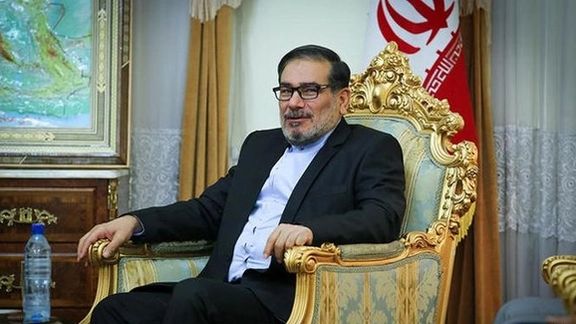
A high-level Iranian delegation to Abu Dhabi led by Ali Shamkhani from Iran's Supreme National Security Council (SNSC) hopes to mend ties with its Persian Gulf neighbour.

A high-level Iranian delegation to Abu Dhabi led by Ali Shamkhani from Iran's Supreme National Security Council (SNSC) hopes to mend ties with its Persian Gulf neighbour.
It is part of wider regional efforts from the regime to bridge tensions between Iran and its rivals, including Saudi Arabia, with whom it agreed to resume diplomatic relations last week.
The visit to the United Arab Emirates also shows the UAE leadership’s desire to take regional peace forward without the hands of the US.
In an unexpected move, the UAE resumed diplomatic relations and returned its ambassador to Iran just last year after ties soured following the storming of the Saudi embassy in Tehran in 2016.
Before the visit on Thursday, Shamkhani said the region will be strengthened by deepening local ties, though.
According to ISNA news agency, he is accompanied by the governor of the central bank and other high ranking intelligence and foreign ministry officials.
Crippled by biting sanctions and a revolution which has plunged Iran into the worst recession in decades, has forced the hardline Iranian leaders to mend ties with neighboring countries in the hope for the revival of the 2015 nuclear deal known as the JCPOA.

Iranian Nobel Peace Prize laureate Shirin Ebadi asked the European Parliament to support the women-led uprising in Iran during a special session on Wednesday.
Ebadi -- who was awarded the 2003 Nobel Peace Prize for her pioneering human rights efforts, especially for women, children, and refugees -- addressed MEPs, urging the EU to maintain pressure on the Iranian regime over human rights violations.
She called on MEPs not to turn their back on the protests in Iran, sparked by the death of 22-year-old Mahsa Amini, during which more than 550 people have been killed and more than 20,000 arrested so far. "Do not give in to this regime," she appealed to the parliament, insisting that "sanctions work" against the Islamic Republic’s authorities.
"Subordinate aid to Iran, contracts with Iran, and treaties with Iran to respect for international norms, otherwise the money will not benefit the Iranian people at all," said the activist, who now lives in exile.
Before the Iranian opposition figure took the floor European Parliament President Roberta Metsola, European Commission President Ursula von der Leyen, and astronaut Samantha Cristoforetti delivered speeches about empowering women, reiterating that the International Women's Day – which was celebrated globally on March 8, must be seen as an invitation for societies to do better.

“International Women’s Day is marked in our annual calendar not only to recognize the achievements of women and girls across the world but also as a call to action,” Metsola said. “A rallying point to strengthen gender equality across all spheres of our society.”
Paying homage to Ebadi, she said, “Your presence is a reminder that the fight will not cease, and that freedom requires courage and sacrifice... Women will not go silently into the night. They will not give up. And the European Parliament will continue to stand with the women of Iran.”
“Today I want to honor all those women who are fighting for their freedom and inclusion; women who are killed, beaten, and abused all over the world just for being women…All those women who face all this and remain unbowed and unbroken,” she added.
Commission President Ursula von der Leyen also praised all the courageous Iranian women fighting for their “freedom to show their hair or cover it, to study, work, to love without asking for anyone’s permission” and for inspiring women across the world.
Ebadi emphasized that Iranian protesters’ demand is regime change under the slogan “Woman, life, freedom,” and called on democracies not to remain indifferent to human rights violations in the country.
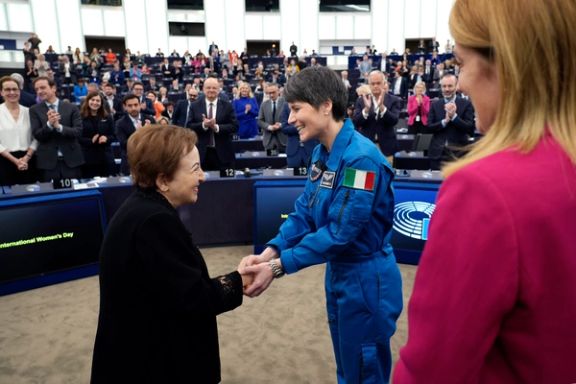
Describing the dire situation of imprisoned journalists, lawyers, artists, activists and young schoolgirls, she decried the absence of a functioning and independent justice system in Iran. "Don't look away from the immense violations of fundamental rights in Iran," she called on the MEPs.
Ebadi also urged the world to designate the Islamic Revolutionary Guard Corps – the IRGC – as a terrorist group. The 27-nation European bloc has so far stopped short of formally labelling the IRGC a terror group, despite calls to do so from Germany and the Netherlands as well as several rounds of rallies by Iranian diaspora communities to push for blacklisting the outfit. She categorically said, “the Revolutionary Guards is a terrorist group," and urged the UE to "say it officially."
Reassuring that Europe would benefit from a democratic Iran, she said if democracy is established in Iran, not only will the number of refugees fleeing from the region be reduced but also peace and calm will be brought back to the region. "Democracy is the key to Iran's future, it is the key to peace and stability in the whole region, and it is also in your interest," she argued. "If democracy comes to Iran, there will be fewer refugees in your country."
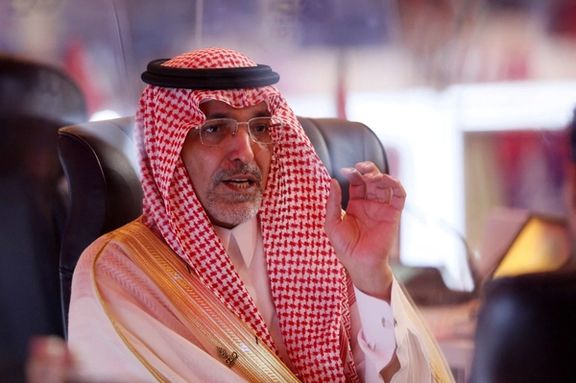
Saudi Arabia's Finance Minister Mohammed Al-Jadaan said Wednesday that Saudi investments into Iran could happen "very quickly" following an agreement to restore diplomatic ties.
"There are a lot of opportunities for Saudi investments in Iran. We don't see impediments as long as the terms of any agreement would be respected," Al-Jadaan said during the Financial Sector Conference in Riyadh.
Iran and Saudi Arabia agreed Friday to re-establish diplomatic relations after years of hostility that had threatened stability and security in the Gulf and helped fuel conflicts in the Middle East from Yemen to Syria.
"Stability in the region is very important, for the world and for the countries in the region, and we have always said that Iran is our neighbor and we have no interest to have a conflict with our neighbors, if they are willing to cooperate," Al-Jadaan later told Reuters in an interview.
Tehran and Riyadh agreed to re-open embassies within two months, according to a statement issued by Iran, Saudi Arabia and China, which brokered the deal.
"We have no reason not to invest in Iran, and we have no reason not to allow them to invest in Saudi Arabia. It is in our interest to make sure that both nations benefit from each others resources and competitive advantage," Al-Jadaan told Reuters.
"If they (Iran) are willing to go through this process, then we are more than willing to go through this process and show them they are welcome and we would be more than happy to participate in their development," he said.
He said there were a lot of opportunities in Iran and that Saudi Arabia also provided a lot of opportunities for Iran.
Report by Reuters
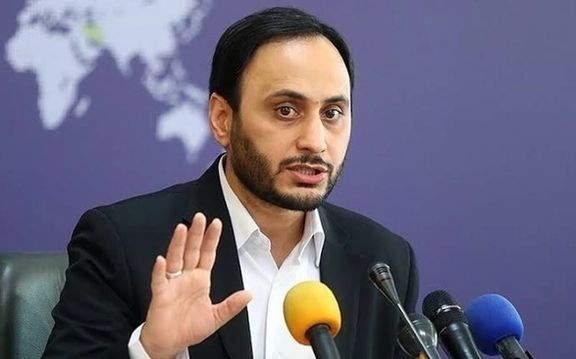
Renewing ties with Saudi Arabia corrects a "strategic mistake" in Tehran's foreign policy after seven years of tense relations.
Ali Bahadori Jahromi made the remarks at a press conference on Tuesday claiming “the regional and global issues are not only solved through the West, and there was a strategic mistake in the past in this regard.”
The government spokesman’s comments come after a historic deal was brokered by China between Iran and Saudi Arabia this month after years of tension blighted relations between the two arch-rivals.
Saudi Arabia severed ties with the Islamic Republic in January 2016 after pro-government Iranian mobs attacked and ransacked its embassy in Tehran and consulate in Mashhad following the execution of a Saudi Shiite cleric.
The hardliners including many of Raisi administration officials, who now boast of the deal with Riyadh as a great victory, are the same ones who supported the attack on the Saudi embassy seven years ago.
One day after vigilante groups attacked Saudi diplomatic buildings in Iran, Ebrahim Raisi said "Iran does not need relations with Saudi Arabia." Raisi, who was then Iran's Public Prosecutor, accused Saudi Arabia of harboring and "feeding" Salafists, and characterized it as "a cancerous tumor in the region."
The two countries will reopen their embassies within two months amidst ongoing negotiations. It is unclear what the conditions are but Saudi has stated Iran must abide by its terms.
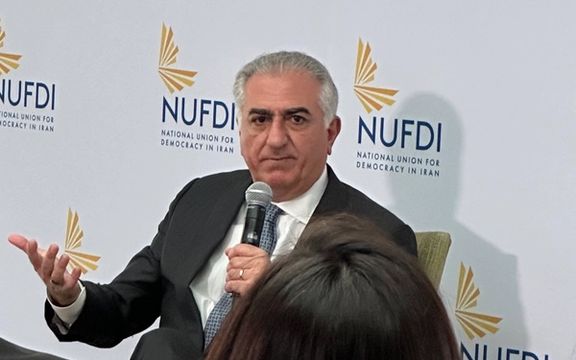
Iran’s exiled Prince Reza Pahlavi addressed lobbyists in the US this week calling for bipartisan support in the US and Europe to achieve a secular Iran.
Speaking at an event held by the National Union for Democracy in Iran (NUFDI) trying to engage “maximum support” for the anti-regime protests in Iran, he criticized current US foreign policy.
All measures, he said, including sanctions, taken to contain the Islamic regime in Iran “is based on a false premise and expectation which was behavior change.”
“Expecting them to change their behavior is such a waste of time,” he added.
Pahlavi reiterated that talks and deals with the Islamic Republic are fruitless because “this regime has proven that its DNA, its reason to exist has nothing to do with the national interests of the country and its people; they’re there only to export their ideology at the expense of the Iranian people.” “For them to succeed, the rest of the world has to fail,” he said, explaining the mentality of the regime.
“It’s zero-sum; they [Iran] cannot have an actual coexistence with a world that is democratic and where human rights are the basis of laws and rules,” he said. He echoed the NUFDI’s call for the annulment of any talks to revive the 2015 nuclear deal with the regime, saying that the world assumes that the deal – known as the JCPOA – would work as a safety catch but a cheating regime can uncheck the safety mechanism if it wants to pull the trigger.
The NUFDI unveiled a 15-point document consisting of action plans and strategic tools for the provision of maximum support as a complement to the US policy of “maximum pressure”, which holds the promise of creating a more complete framework for US-Iran policy.
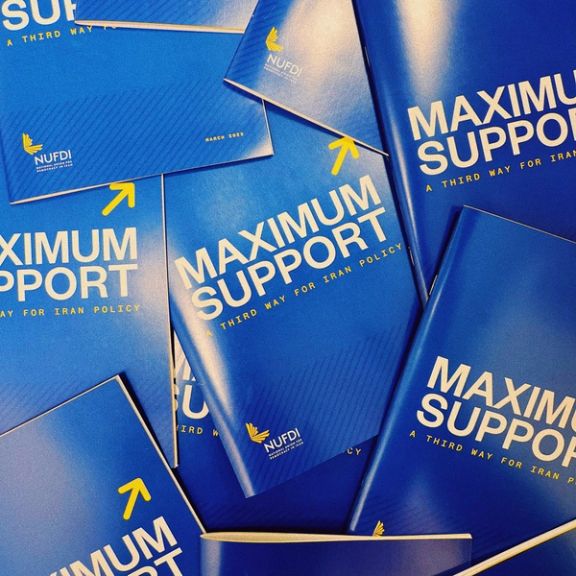
It calls for a mechanism to hold the Islamic Republic accountable through economic and diplomatic isolation, which also engages, elevates and empowers the Iranian people through the provision of much-needed moral, logistical and financial support. The two strategies work hand-in hand as the pressure on the Islamic Republic weakens the regime in the face of a growing democratic movement and strengthens the Iranian people relative to their oppressors.
In the opening speech of the event, NUFDI Policy Director Cameron Khansarinia said, “We believe that maximum pressure on the Islamic Republic is necessary; holding the regime accountable for crimes against the Iranian people is not only a movement for freedom, it’s absolutely necessary. Pressure on the Islamic Republic is a form of support of the Iranian people because it comparably weakens the regime and maximum support for the Iranian people is a form of pressure on the regime because it empowers, emboldens, and strengthens the people vis-a-vis the Islamic Republic.”
“First the US must announce a strategic policy shift in its Iran policy,” he said, adding that “the president should publicly address the American people in support of the Iranian people’s movement for a secular democracy.” “Maximum support begins with a formal strategic realignment of US policy and the president coming out formally in support of the Iranian people's right to determine their future and right to a secular democracy” he noted.
Several pundits from different think tanks, such as the Middle East Institute, American Progress and Carnegie Endowment for International Peace, as well as Member of Canada’s House of Commons Ali Ehsassi and Member of the Belgian Parliament Darya Safai were among the other participants of the event.
A popular voice for the revolutionary movement, Pahlavi said that it is futile to negotiate with the regime because only eradicating the regime can lead to true change. “Secular opposition has the answers,” he said, calling such an action “a controlled implosion” of the regime and not the “anarchy,” which many believe is making the Western powers hesitant to put more weight behind the protesters.
Pahlavi said that “the regime change is not a bad concept” only because it was mishandled somewhere else such as Iraq, emphasizing that it is futile to negotiate with the regime about the solutions for the country “because they’re part of the problem, and the secular opposition has the answers.”
Pahlavi noted that one of the most important mechanisms for the transition to a democratic Iran is using Tehran’s frozen funds in foreign countries to support strikes by workers in the oil, gas and transportation sectors.
He said one of the most significant elements that put pressure on the previous regime leading to the 1979 revolution, through which his father was overthrown, was financial support for the striking workers of the oil industry.
He underlined that the amount of money needed to support the striking workers is way lower than the funds blocked in other countries due to the US sanctions, saying that supporting workers, who would normally earn around $300 per month, for a few months would offer a manageable solution.
He called for bipartisan support in the US – and in other European countries for that matter, saying that politicians from across the spectrum should support a secular Iran and engage in dialogue with the united front of democratic opposition. "We should take a book out of the experiences that the Israelis have had,” he said, adding that “when it comes to Israel, we expect bipartisan support” from the US regardless of party affiliation. “We don’t expect anything short of bipartisan support when it comes to Iran and our freedom and human rights.”
He described supporting the protesters in Iran as a win-win situation for the world, especially the European countries. He said the immediate tangible benefits would be supplying the energy needs of Europe through Iran’s gas reserves and the stop of the flow of immigrants fleeing from the conflicts in the region to Europe, which is saturated by the number of migrants.
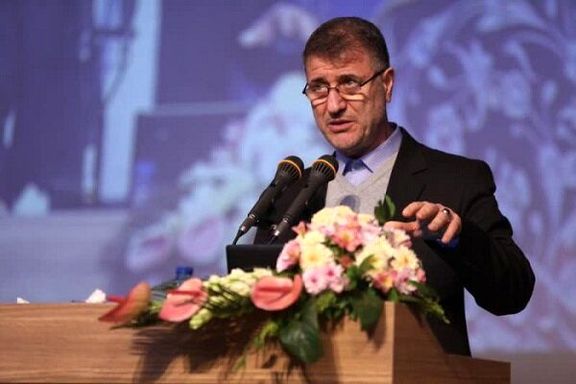
A high-ranking official of Iran's Ministry of Science says Europeans have restricted their academic ties with the Islamic Republic.
Germany has also closed the office of the German Academic Exchange Service (DAAD) in the country.
Vahid Haddadi-Asl, the deputy minister in international affairs told state-run ISNA news agency that the European countries are not interested in academic collaboration with Iran.
"We have no limits on scientific cooperation with the countries of the world except with the Zionist regime, but the Europeans restricted their ties and Germany closed the office of the German Academic Exchange Service (DAAD) in Iran,” he said, DAAD academic, and should not be politicized.
However, in his statements, Haddadi did not mention the extensive pressure on students and declined to explain why a number of Iranian or foreign academic figures are arrested in Iran on the charge of espionage.
Students have been under pressure for years, and in recent protests following the death of Mahsa Amini in September a large number of them were detained and beaten up by security agents, even inside campuses.
However, Haddadi claimed the Islamic Republic had "good academic activities" in the neighboring countries, and "some good agreements were signed with them” namely Iraq, Pakistan, Tajikistan, and Uzbekis